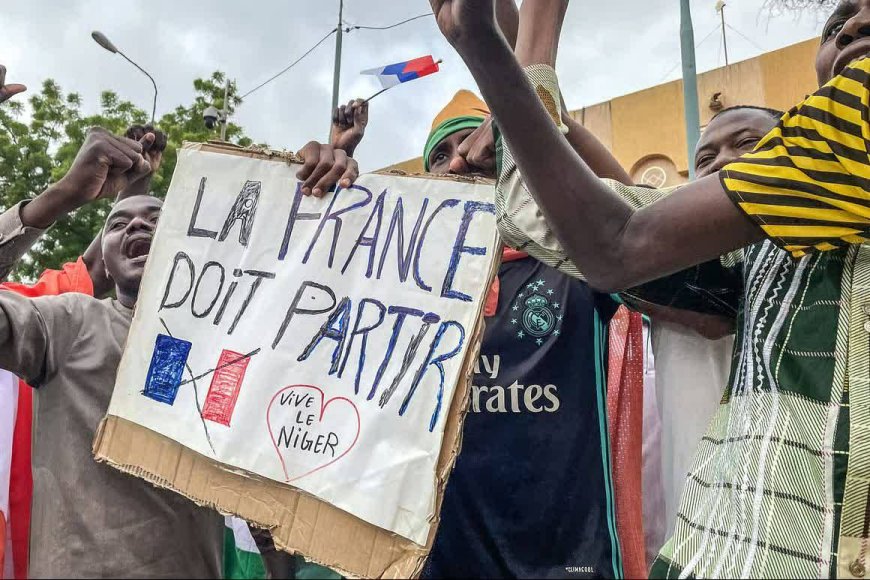The Niger Coup and its Geopolitical Ramifications: A Transforming African Landscape
The Niger Coup and its Geopolitical Ramifications: A Transforming African Landscape

On the fateful day of Wednesday, July 26, media outlets reverberated with news of a military coup in Niger, an African nation. This event marked the seventh coup in West Africa in the past three years and the fifth since Niger's independence from France in 1960. The strategic significance of Niger in West Africa has made it a pivotal battleground for major global powers, transforming the nation into a theater for their interests. As the largest country in the region, Niger boasts abundant natural resources, including uranium, diamonds, gold, and coal. However, due to historical colonial policies, particularly by France, Niger remains one of the most impoverished countries globally, with almost half of its population living below the poverty line.
Historical Context:
Throughout history, weaker nations have inevitably become pawns in the interference and competition of major powers. Regrettably, the collective memory of the African people bears witness to a bitter history of interventions by great powers, particularly France, on the Black Continent. Niger, situated in West Africa, is no exception to this rule. Having been a French colony during the 19th century, Niger's independence in 1958 did not shield it from Paris's persistent involvement in its internal affairs. Consequently, Niger remained under the influence and domination of France. Anti-French sentiments on the African continent, coupled with France's expulsion from Mali, positioned Niger as a new strategic center for French interests in West Africa.
French Interests in Niger:
France's stake in Niger is profound and multifaceted. Firstly, approximately 70% of France's electricity is generated by power plants fueled by uranium imported from Niger. Furthermore, France relies on Niger to fulfill 35% of its uranium requirements, making Niger the world's fourth-largest producer of this strategic material. Additionally, France maintains military bases and deploys 1,500 troops in Niger, while the country also hosts the primary NATO base in the Sahel region of Africa. The recent military coup in Niger has undermined France's position in the country and jeopardized its strategic interests.
Challenges Faced by Niger:
President Mohammad Bazoum's government in Niger has grappled with suppressing terrorist attacks despite increased foreign presence, particularly from the United States and France, and the establishment of military bases. Various terrorist groups, including Al-Qaeda, ISIS-affiliated rebels, and Boko Haram, operate within Niger, resulting in the loss of thousands of lives and mass displacement. The inability to effectively combat these groups has led to disillusionment among the Nigerien population, who have lost faith in their elected government and its Western allies.
Factors Contributing to the Coup:
The recent coup in Niger can be attributed to a culmination of factors. Years of frustration within the military, stemming from defeats against extremist groups, have fueled discontent. Additionally, the military expressed dissatisfaction with President Bazoum's efforts to reform the armed forces. The presence of foreign forces and military bases in Niger has also generated unrest within the country's military, as they perceive it as a threat to national security.
Emerging Russian Influence:
The condemnation of the coup by France and the United States has pushed the rebels closer to Russia, potentially leading to increased Russian involvement in Niger. The new leadership in Niger may seek assistance from the Wagner Group, which could bolster Russia's influence in the country. This development raises concerns for the West, particularly the United States, as it allows Russia to expand its presence on the Black Continent.
In recent years, Russia and China have made remarkable diplomatic and economic inroads into Africa, displacing the influence of former colonial powers such as Britain and France. Russia, in particular, has emerged as a major supplier of weapons to African countries, accounting for 40% of imported weapons since 2018. The Russian military group Wagner has established a presence in countries like the Central African Republic and Sudan, providing not only military training but also security for valuable resources in exchange for a share of profits. Russia's influence extends beyond weaponry, encompassing agricultural sectors as well. With Africa's heavy reliance on food imports, Russia holds a unique position that other countries, including China, cannot match.
Conclusion:
The military coup in Niger has brought about a transformative geopolitical landscape in Africa. The potential for Niger to fall under Russian influence could impact the relations between North African countries and France, as well as the rest of Europe. Furthermore, it may strengthen Russia's hold on the Black Continent. As the President of Russia aptly stated, the African continent has become a new center of power. Should Putin continue to navigate these geopolitical dynamics effectively, the hypothesis of an expanding Russian presence in Africa may indeed become a reality.












































